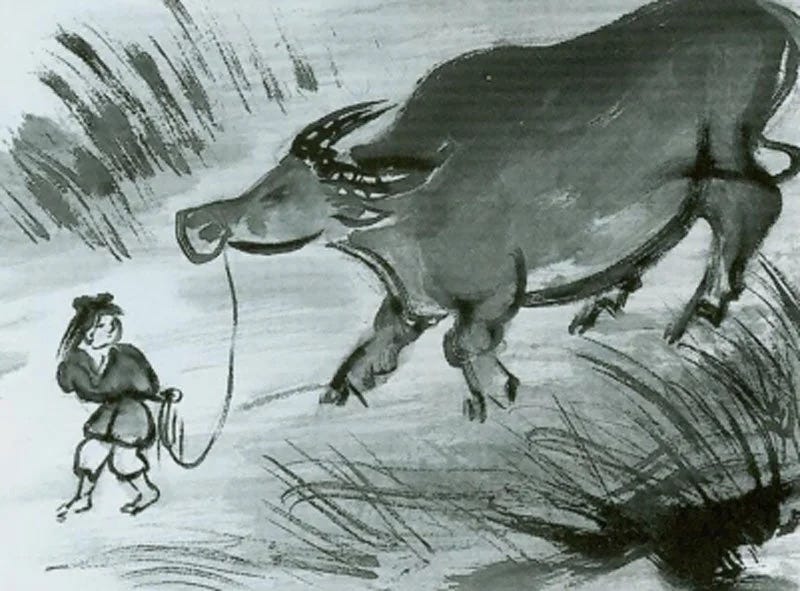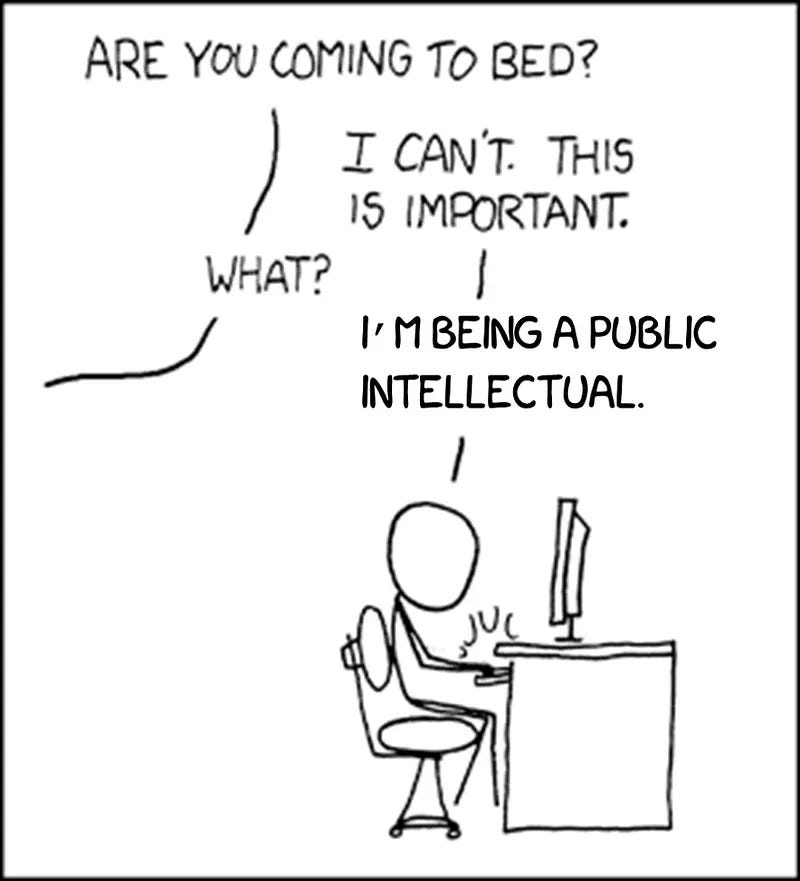Learning Kindness Skills
Description
Welcome to the first episode of the Meaningness podcast!
It is about how to learn to be kind.
I want to be kinder than I am. Maybe you do too. Good intentions are not enough, I think. My spouse Charlie Awbery offers suggestions.
Charlie will teach some methods relevant to this podcast in a workshop in New York City, April 22nd–25th; you can read more and reserve a place here.
The making of
This is the first serious joint recording by Charlie and me. For years, we had repeatedly agreed to podcast, and occasionally made half-baked attempts which didn’t quite work. This time we prepared, used proper equipment, and it came out well.
We thought a spontaneous, natural-sounding conversation would be better than a scripted one. We each wrote bullet points before starting, and deliberately didn’t share them with each other. The conversation is fluid and fun. However, we circled around the topic, and perhaps never quite hit the mark. Next time, we’ll merge our lists of bullet points and put them into a coherent overall plan before starting.
Something I forgot to explain: what the guy in the elevator said was a humorous and insightful comment on the situation itself. It was neither self-deprecating, nor at his companion’s expense. It was friendly and droll.
Humor, both in the sense of pointing out a funny aspect of a situation and in the sense of “good humor,” is often a skillful form of kindness.
Image: (CC) a4gpa
The Black Goat podcast episode “Kindness in Academia,” which we discuss, is here. The bit about introversion being an obstacle to kindness starts at 33:20 .
Transcript
David: I suggested this topic because I feel like I would like to be kinder than I am, and I find being kind sometimes difficult, and I think there’s a number of reasons I find it difficult. And I suspect that there’s a meaningful number of listeners who find themselves in this same position.
Charlie: Hmm. That is really interesting for me to know. I didn’t know that.
David: About me?
Charlie: Yeah.
David: Oh.
Charlie: I didn’t know that you find being kind difficult, and it’s kind of funny because when I was making a few bullet points for this conversation— I’ll read the very first thing that I wrote. You’re going to laugh. “There’s an idea that kindness is difficult, that it’s something you have to work hard at. I think that’s wrong.”
David: Right. Well, I think this may contradict the lived experience of many people, including me.
Charlie: Hmm. Well, so do you want to say [00:01:00 ] more about what it is that you find difficult? What goes wrong? Why is it difficult?
David: Well, there’s a podcast I re-listened to this morning with Simine Vazire, who is one of my heroes. She’s a leader of the academic psychology reform movement, which was in response to the replication crisis, but also in response to lots of other problems.
And the title of the podcast is “Kindness in Academia,” and she and the other discussants are talking about ways that one can be kind in academia, but there’s this short section that I find really touching, that is quite raw on her part, where she says I would like to be much more kind than I am.
And the obstacle for me, [00:02:00 ] she says, is that I’m so introverted. And, in order to be kind, you often have to break through a, maybe even extremely thin, but a slight layer of interactional business as usual. And so she says she’s constantly buying gifts for people because, you know, “Oh, yes, so-and-so would really like this,” and then she doesn’t give it to them because it might be awkward for them because they might feel obligated or, giving somebody a compliment, like they could take it the wrong way.
Charlie: Goodness.
David: And I feel that way too, maybe not quite as extremely as she does.
Charlie: Do you have something similar going on? Do you want to buy gifts for people or buy gifts and then not give them?
David: No, but there’s times when giving a compliment— I mean, I’ve gotten a lot better at this, to be honest. I’m partly [00:03:00 ] recalling how I was in past, but it’s still sometimes— It’s awkward to do things for people if they might feel some kind of unwanted reciprocal obligation, or you think this is something that the person would want, but actually they don’t, and maybe you misread that.
Charlie: So let me reflect something back to you and see whether this is accurate from your perspective. It sounds to me like there’s an equivalence between between kindness and doing something for somebody, or giving somebody something, even if that’s a compliment.
David: Well, no, actually, in my notes, I have a list of various sorts of things that are not the same as kindness, which can be confused with it, and generosity is one of them.
Generosity can often be kind, but a lot of kindness isn’t particularly generous. [00:04:00 ] Often it costs you nothing to be kind, and then it’s just a matter of choosing and remembering to do it.
Charlie: Yeah, I agree. I agree. So, I’m curious that the examples that you brought there are all to do with giving and generosity. And the example from Simine as well.
David: Right, yeah, I think I was following her lead.
Charlie: Yeah, well that’s very interesting because that connects to one of the things that I’ve perceived, I’m not 100 percent confident about this, but I think that this idea that kindness is difficult is mixed up with the idea that it has something to do with giving, generosity. Also that it has something to do with a kind of feeling that you have to cultivate or nurture towards others in [00:05:00 ] order to be kind.
David: Yes.
Charlie: And I think that’s wrong, too.
David: Yes, right. My list of things to distinguish kindness from are: niceness, generosity, compassion, empathy, warmth, charm, and good feelings, and being ethical. Each of those is interestingly not quite kindness.
Charlie: Not quite the same, but I think there are connections.
David: Yes.
Charlie: Some of the connections are significant.
David: Yes.
Charlie: So I would want to say that when I think about what kindness is, I always come back to an attitude that the kindness is based in, and I think there’s a generosity comes into that attitude. There’s a kind of an attitude, a base attitude of just simply wanting the best for everyone, sincerely wanting that wanting others to experience happiness and [00:06:00 ] enthusiasm and love for life and joy and peace, and it’s easy to get caught up in a worry about “Oh, can I be kind? Will I be kind? Am I doing the right thing to be kind to this person?” And that isn’t— that’s an extra layer. It’s an extra layer on top of the very simple interaction that there is underneath things.
And that concern is really all about “How do I look? How are they gonna think about me? Am I gonna do something daft and ridiculous and silly?” And the more that you can not worry too much about that, the more likely it is that you can relax into a kindness attitude, I think. I have done so many ridiculous, idiotic, silly things. I don’t worry about that anymore. I really don’t. We’re human beings. We’re going [00:07:00 ] to be calibrating with some kind of trial and error. I think it’s okay to recognize that and to take risks. So a lot of the fear around kindness is tied up with being afraid of taking risks.
David: Yeah. That makes sense to me. The phrase “kindness skills” is a framing that I’m kind of guessing that you would probably actually reject; and I have mixed feelings about that myself.
Charlie: I prefer “kindness attitude.”
David: Yes.
Charlie: I do think there are some skills involved.
David: Ah, all right, good.
Charlie: However,
David: We’re not completely disagreeing.
Charlie: Yeah. I mean, what are kindness skills for you?
David: Well , I think this is interesting in a somewhat broader context of… the kinds of [00:08:00 ] people that we both tend to attract and advise have a technical mindset, in which the way that you are good at something is by having a set of techniques that you have mastered. And that is at best limited and it interferes with spontaneity, which is, I think, probably critical for kindness; and taken too literally, you can try to rely on gimmicks or little tricks that you can play that you hope are reliably going to constitute kindness and make people like you or something, which is exactly the wrong attitude.
Charlie: This is really interesting because I think there are hacks. I really do think there are hacks that can help you get into the zone or the space that is going to result in being kind. [00:09:00 ] And I’m just thinking about th














